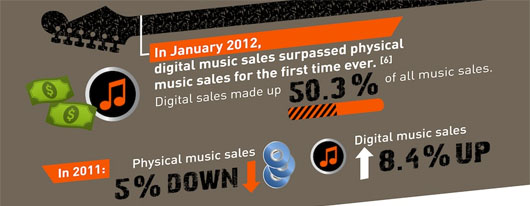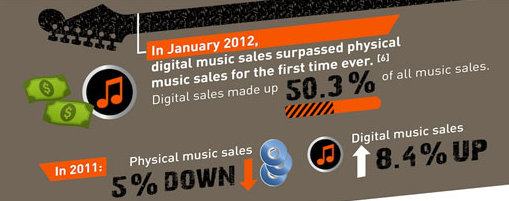Streaming and downloading music via the Internet has become the norm these days. With websites like Pandora, apps like Spotify, and the ever-dominant iTunes, most people no longer feel a need to visit a local record store to get a new album.
In fact, the Wall Street Journal named the record store industry one of the top 10 dying industries in 2011. Record store sales dropped by 77.4% from 2000-2010, and are projected to drop by another 39.7% by 2016. After all, physical CDs have become more or less unnecessary—if you want to listen to a song, all you have to do is visit YouTube, and voila! Instant gratification.

So what does all this mean in terms of the environment? Shouldn’t streaming and downloading music online lead to a smaller carbon footprint when compared to manufacturing and selling plastic CDs? A recent report from MusicTank says otherwise.
“Streaming or downloading 12 tracks, without compression, just 27 times by one user would, in energy terms, equate to the production and shipping of one physical 12-track CD album,” writes report author Dagfinn Bach.
What this essentially means is that streaming or downloading an album online is actually worse for the environment than buying the plastic CD version. Though surprising at first, the idea does seem plausible. Buy a CD one time, and you can listen to it infinitely without using any extra energy. But once you’ve streamed or downloaded that 12-track album 27 times, you will have used the same amount of energy as if you’d bought the plastic version.
According to PaidContent, MusicTank has scheduled an upcoming conference about streaming-music energy consumption, indicating there is some concern surrounding the issue. Hopefully, music services will discover a way to make streaming and downloading music more environmentally friendly in the near future.


